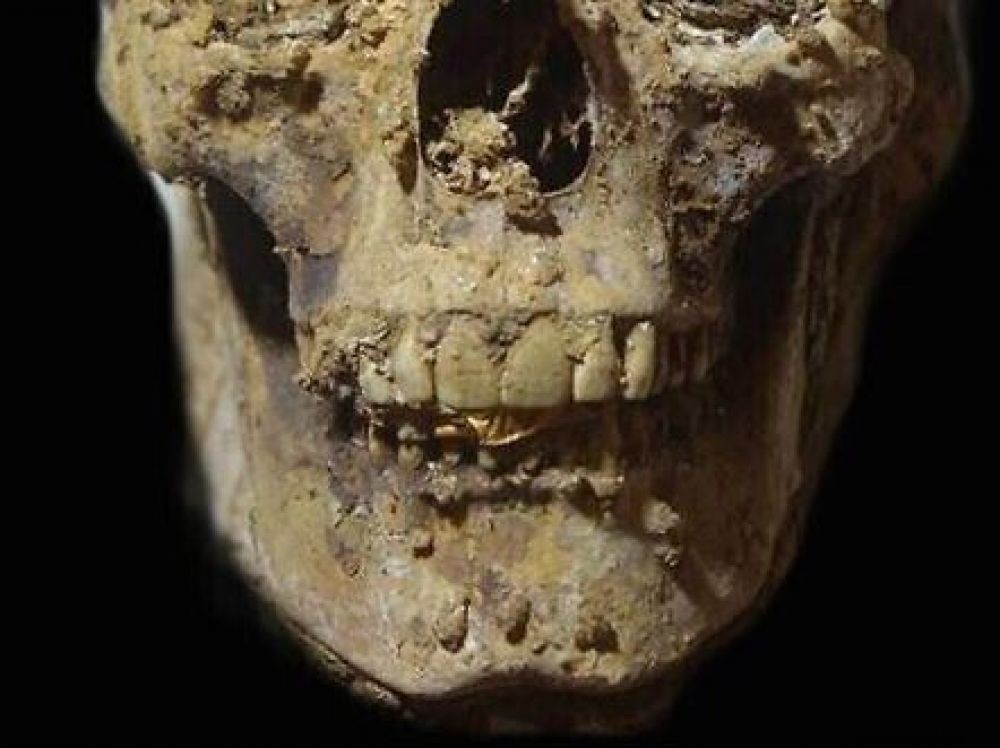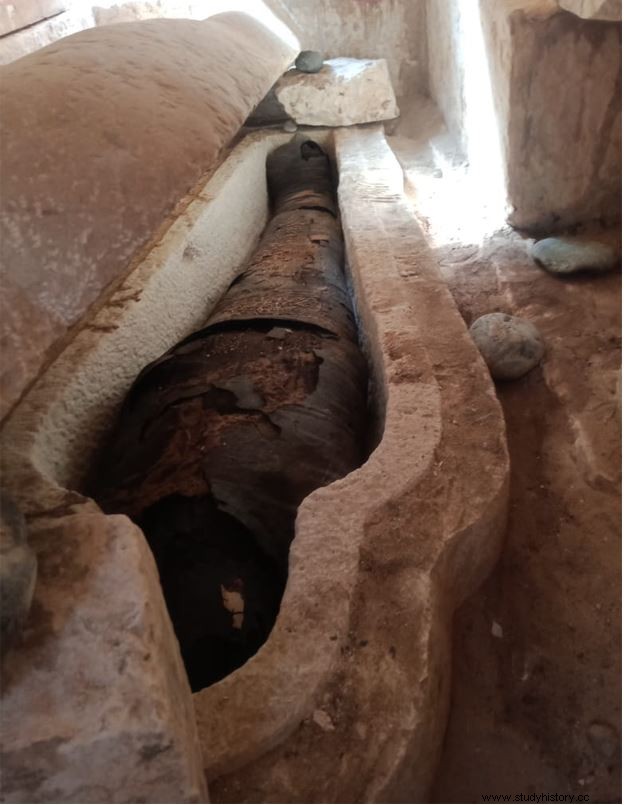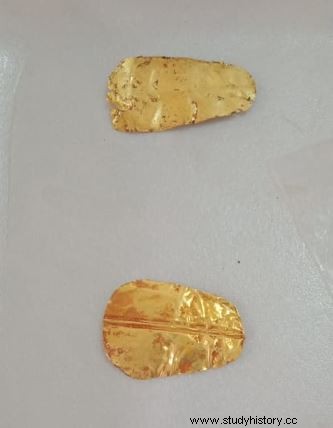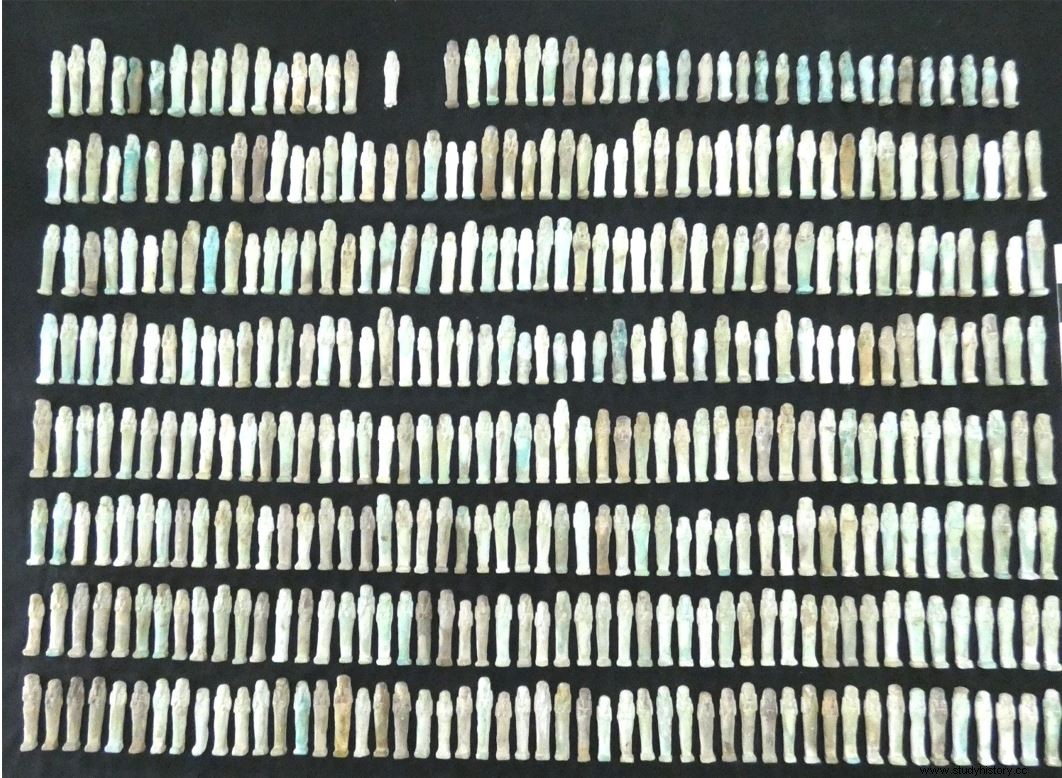Two sealed tombs dating back 2,500 years have been discovered at the site of El Bahnasa in Upper Egypt. They housed two mummies of the XXVI th dynasty.

The tip of a "golden tongue" appears in the mouth of a 2,500-year-old mummy discovered at the site of El Bahnasa, in Egypt.
"Silence is golden ", the saying goes! But did the "golden tongues" found in the mouths of a couple of 2,500-year-old Egyptian mummies possess such significance? Probably not. A Spanish team, active in the governorate of Mynia since 1992, has just uncovered the sealed sarcophagi of two former inhabitants of ancient Oxyrhynchos, the current El Bahnasa, 200 kilometers south of Cairo, bearers of these precious attributes. Egyptian Ministry of Tourism and Antiquities.

One of the two stone sarcophagi recently unearthed in El Bahnasa, south of Cairo (Egypt). © Egyptian Ministry of Tourism and Antiquities.
According to the team from the University of Barcelona behind this discovery, the two tombs in which these human remains were found date back to the XXVI th dynasty, or the period of the Saite Renaissance, a late period of ancient Egypt beginning in 688 and ending in 525 BCE. Gold leaves were placed in the mouths of the remains to allow them to speak to Osiris, the god of the dead, guarantor of eternal life in the afterlife of the ancient Egyptians. By their inalterability and symbolism, gold was equated with eternity and the flesh of the gods.

Two copies of "golden tongues" from El Bahnasa, in the governorate of Mynia (Egypt). © Egyptian Ministry of Tourism and Antiquities.
One of the mummies was accompanied by four canopic jars - the receptacles used to store the viscera - as well as numerous amulets and ushabtis earthenware, funerary figurines.

Among the grave goods found were more than 400 shabtis as well as amulets. © Egyptian Ministry of Tourism and Antiquities.
Three other "golden tongues" were also discovered outside the graves, according to the press release from the Egyptian Ministry of Tourism and Antiquities. In February 2021, Sciences et Avenir had already reported the discovery of such remains on the site of Taposiris Magna, near Alexandria, where a mummy concealing a golden tongue in the mouth had been exhumed by Dominican archaeologist Kathleen Martinez.
El Bahnasa, the ancient Oxyrhynchos ("The City of the Sharp-nosed Fish"), is the name of an ancient Greek city in Egypt where an extraordinary treasure was discovered in 1897 in the middle of a dump. This concealed ten meters of thousands of papyrus waste summarizing the life of a millennium of Hellenic civilization in the shadow of the pyramids! These old abandoned papyri, many of which are still being studied, were found by two young British archaeologists, Bernard P. Grenfell and Arthur S. Hunt.
